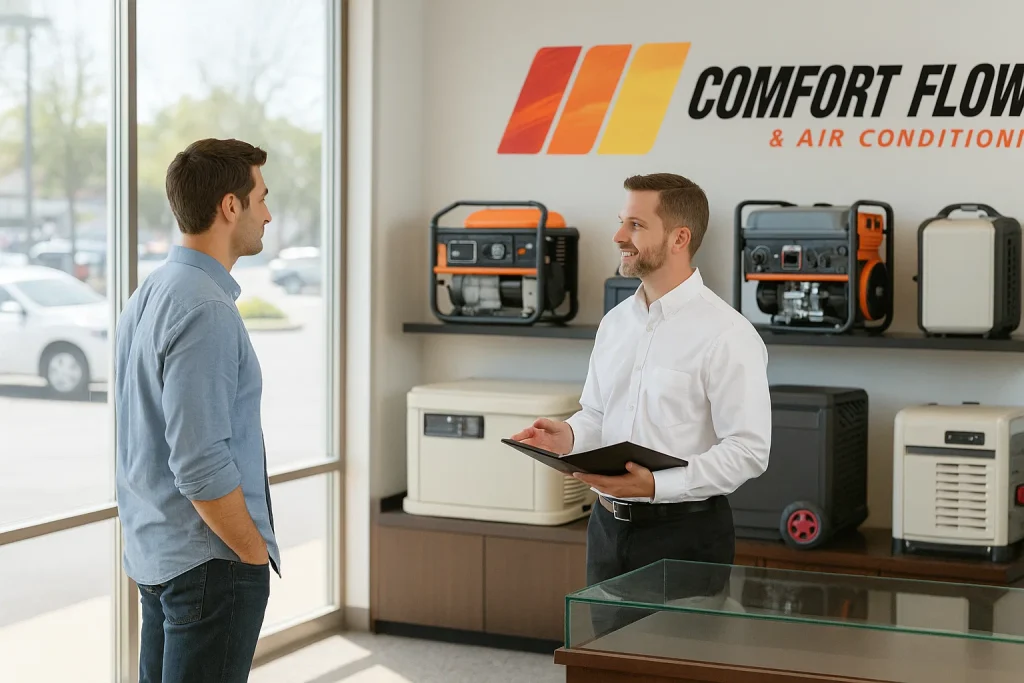When severe weather or unexpected power outages strike, having a reliable generator can keep your home running smoothly and safely. In Springfield, storms, high winds, and even utility maintenance work can leave neighborhoods without electricity for hours—or sometimes days.
Choosing the right generator for your home is about more than just picking the biggest or most expensive model. It’s about finding the perfect match for your household’s needs, budget, and safety requirements.

Step 1: Determine Your Power Needs
Before you can choose the right generator, you’ll need to know how much power you require. Start by making a list of essential appliances and systems you want to keep running during an outage. This might include:
- Refrigerator and freezer
- Lights in key areas
- HVAC system or space heaters
- Sump pump
- Medical equipment
- Internet and communications devices
Once you know which devices you want to power, you can calculate the total wattage required. This will help you decide between a portable generator or a whole-house standby model.
Step 2: Choose Between Portable and Standby Generators
Portable Generators
These are typically more affordable and can be moved where needed. They’re ideal for running a few key appliances during shorter outages. However, they require manual setup, fuel refills, and proper storage.
Standby Generators
These units are permanently installed outside your home and connected to your electrical panel. They run on natural gas or propane and automatically start during a power outage. Standby generators offer seamless, long-term backup power but require a higher upfront investment and professional installation.
Step 3: Consider Your Fuel Source
Generators can run on many different types of fuels, from gasoline to propane or natural gas. Each option has its pros and cons:
- Gasoline: Widely available but has a shorter shelf life and requires safe storage.
- Propane: Clean burning, long shelf life, and ideal for standby units.
- Natural Gas: Continuous supply through your home’s utility line—no refueling needed.
Springfield residents who experience frequent, extended outages may prefer propane or natural gas for convenience and reliability.
Step 4: Safety Features to Look For
Safety is critical when operating a generator. Look for features such as:
- Automatic low-oil shutoff to protect the engine
- Carbon monoxide (CO) sensors that trigger an automatic shut-down
- Overload protection to prevent damage to appliances
- Transfer switches for seamless, safe connection to your home’s electrical system
Step 5: Professional Installation and Maintenance
If you choose a standby generator, professional installation is non-negotiable. One of our licensed technicians will ensure it’s connected properly, meets Springfield’s building codes, and operates safely. Routine maintenance—such as oil changes, filter replacements, and annual inspections—is essential to keep your generator reliable when you need it most.
Why Springfield Homeowners Trust Us
We’ve been helping local residents choose and maintain the right generators for years. Our team knows the unique power challenges Springfield homeowners face and can guide you through every step—from calculating your power needs to professional installation and ongoing maintenance.
Your comfort is our business! Comfort Flow Heating serves all of Oregon, so contact our team today to schedule your appointment.
